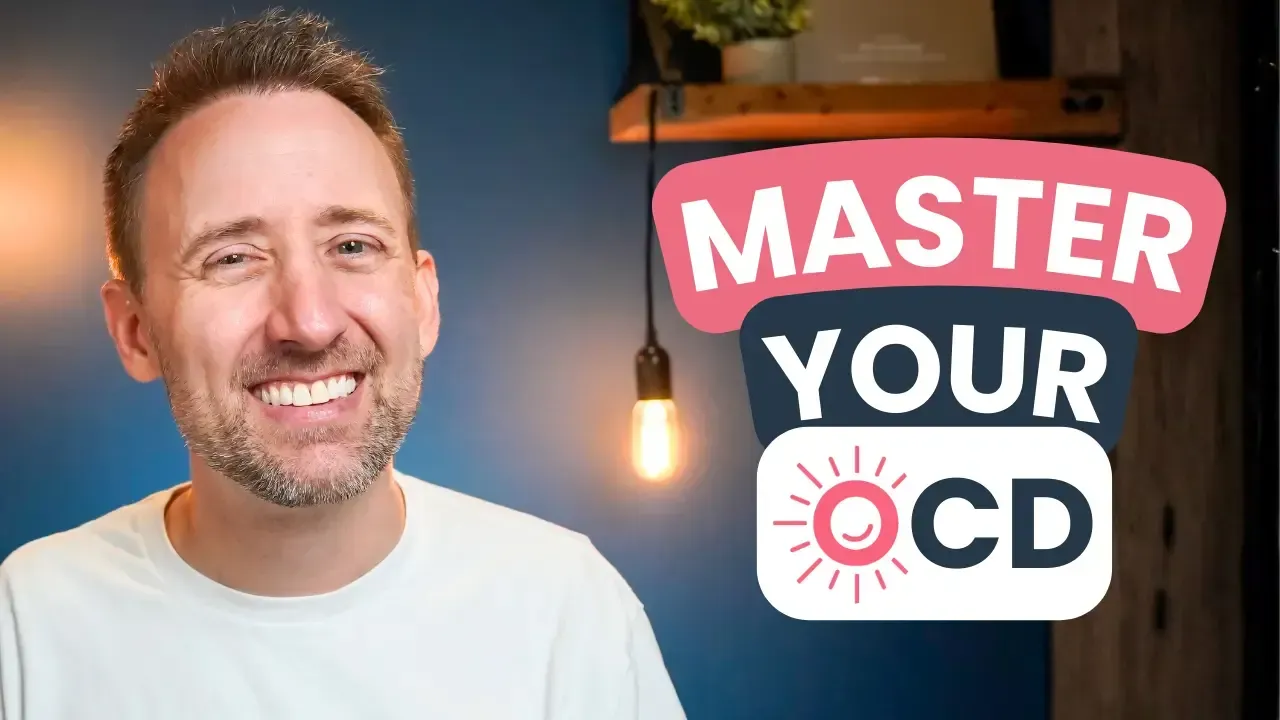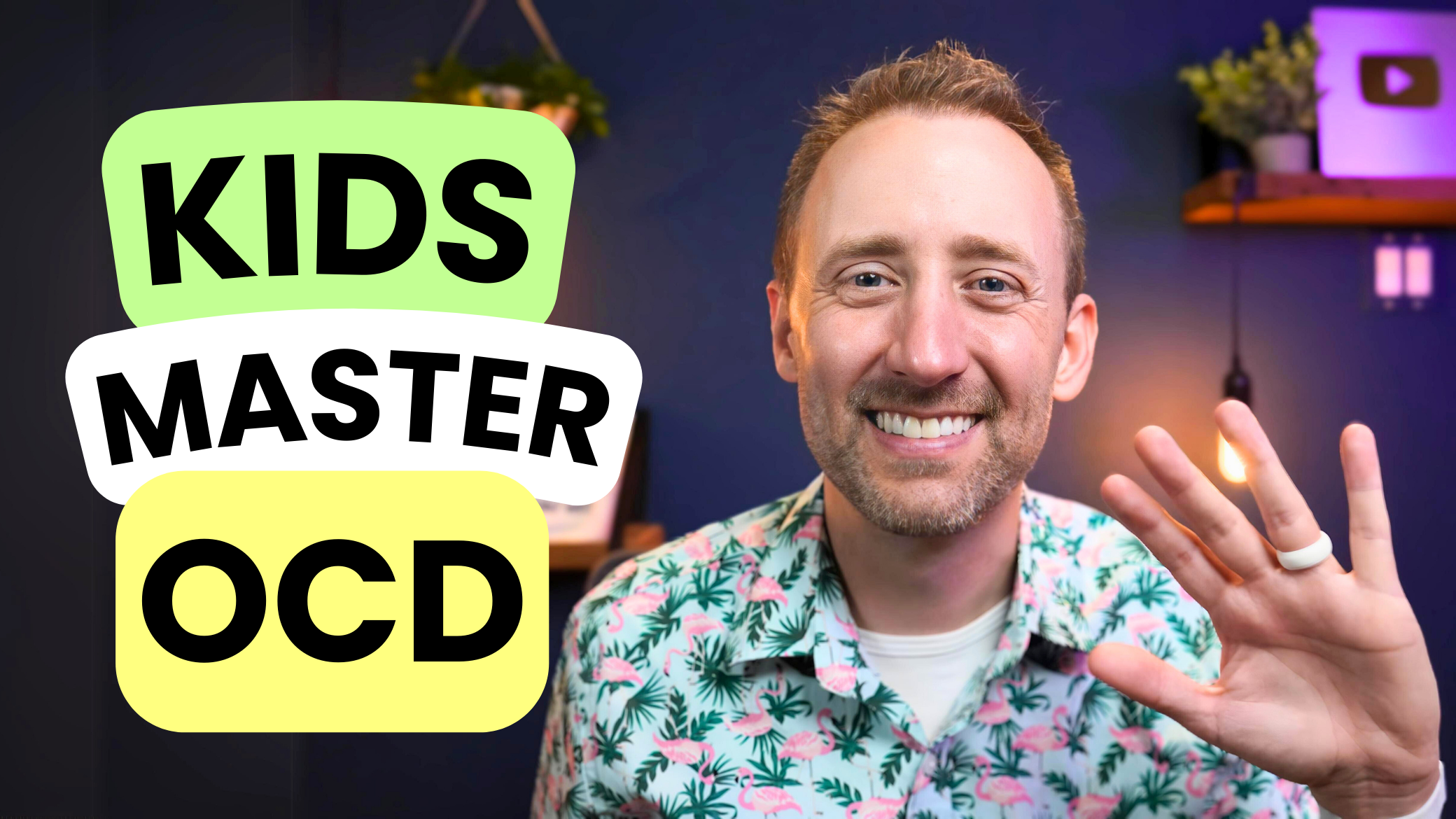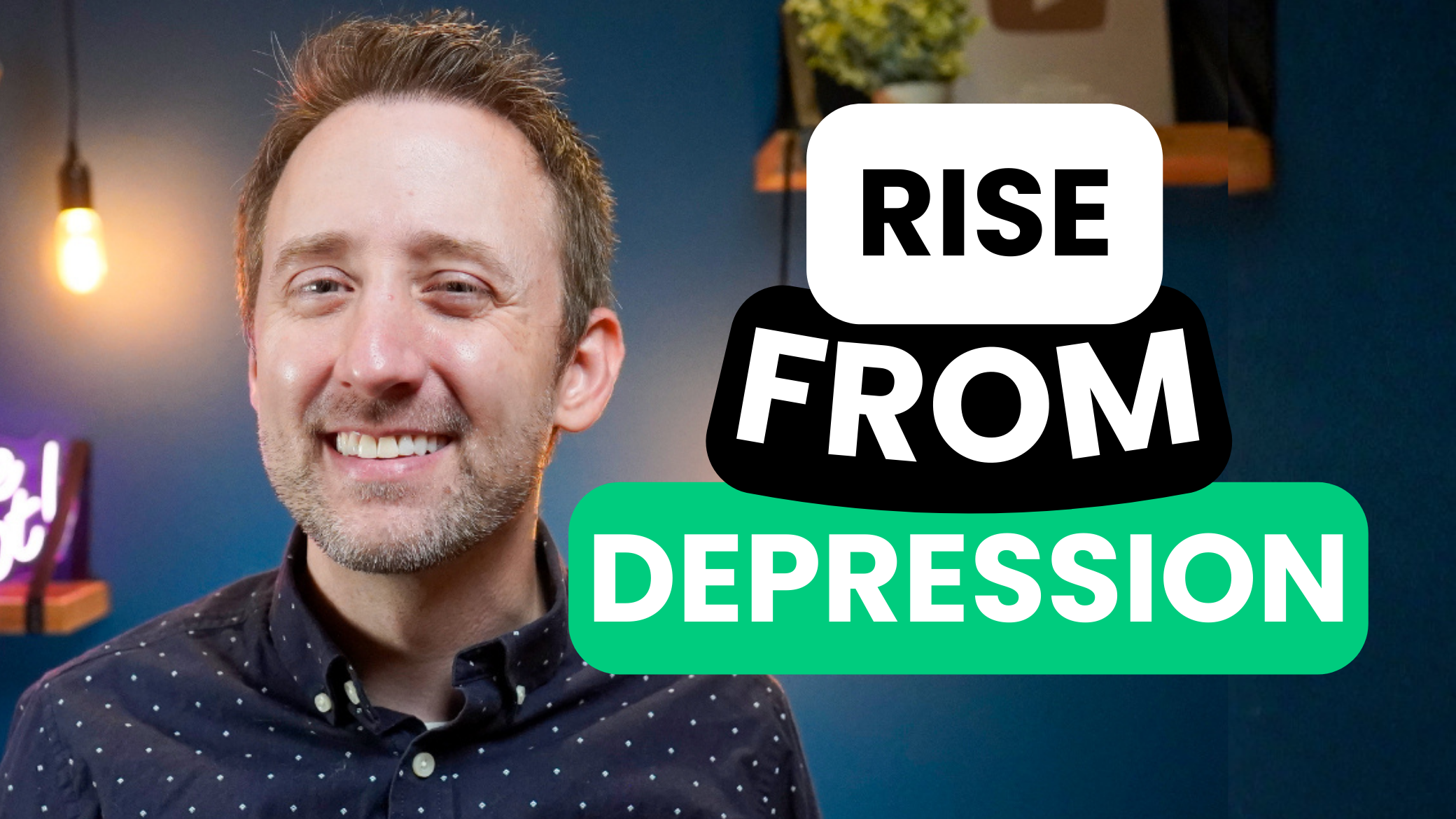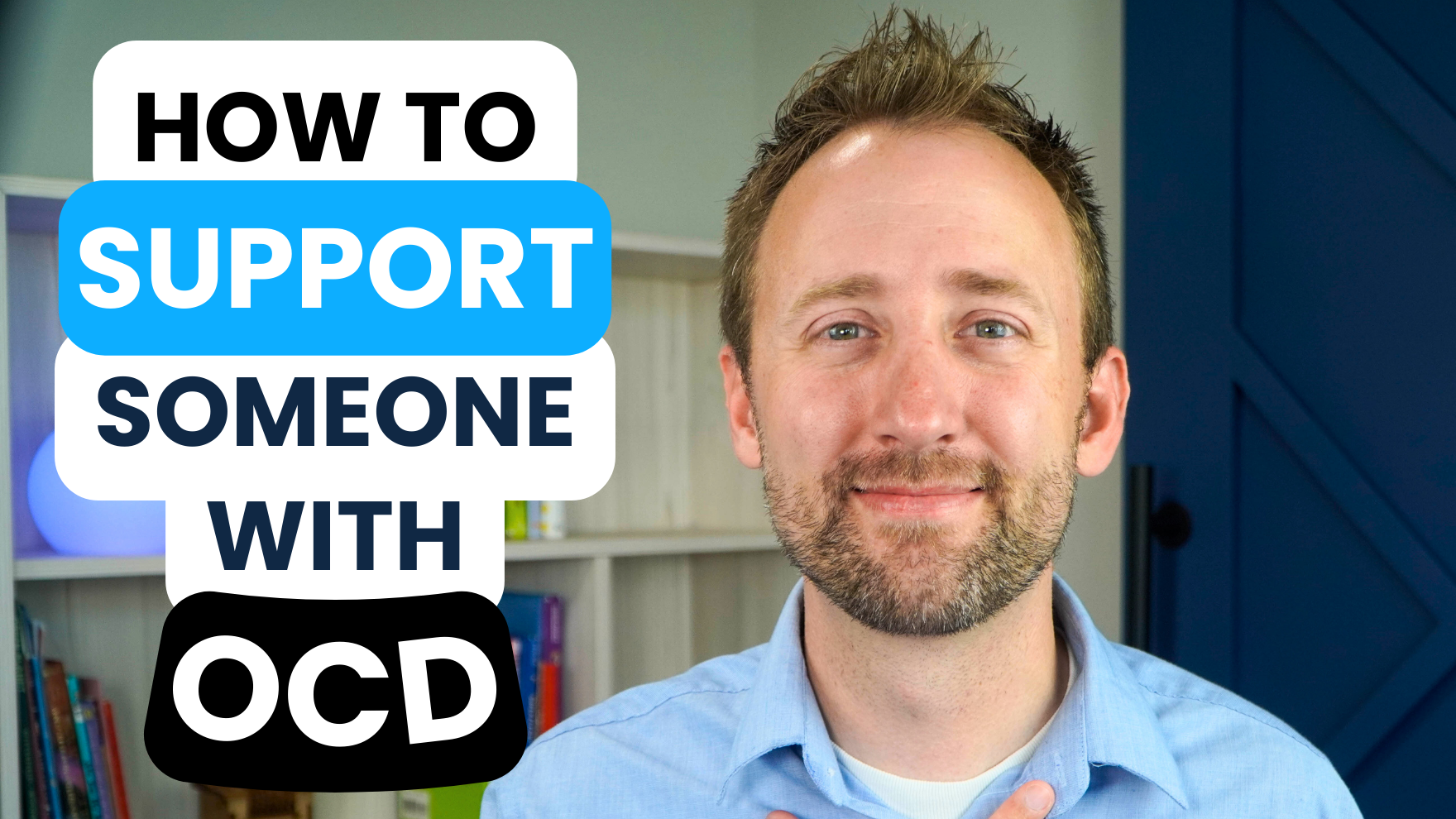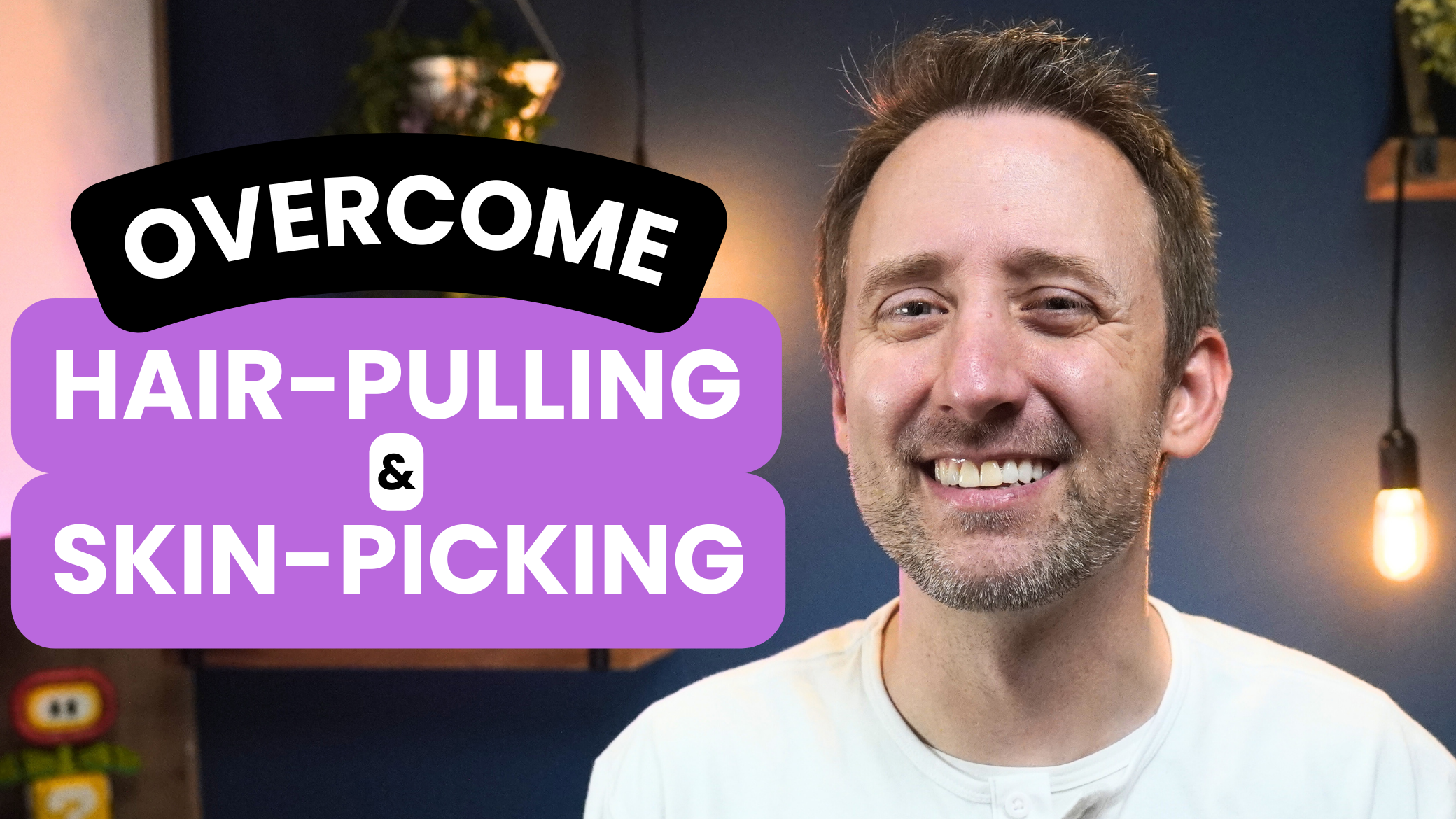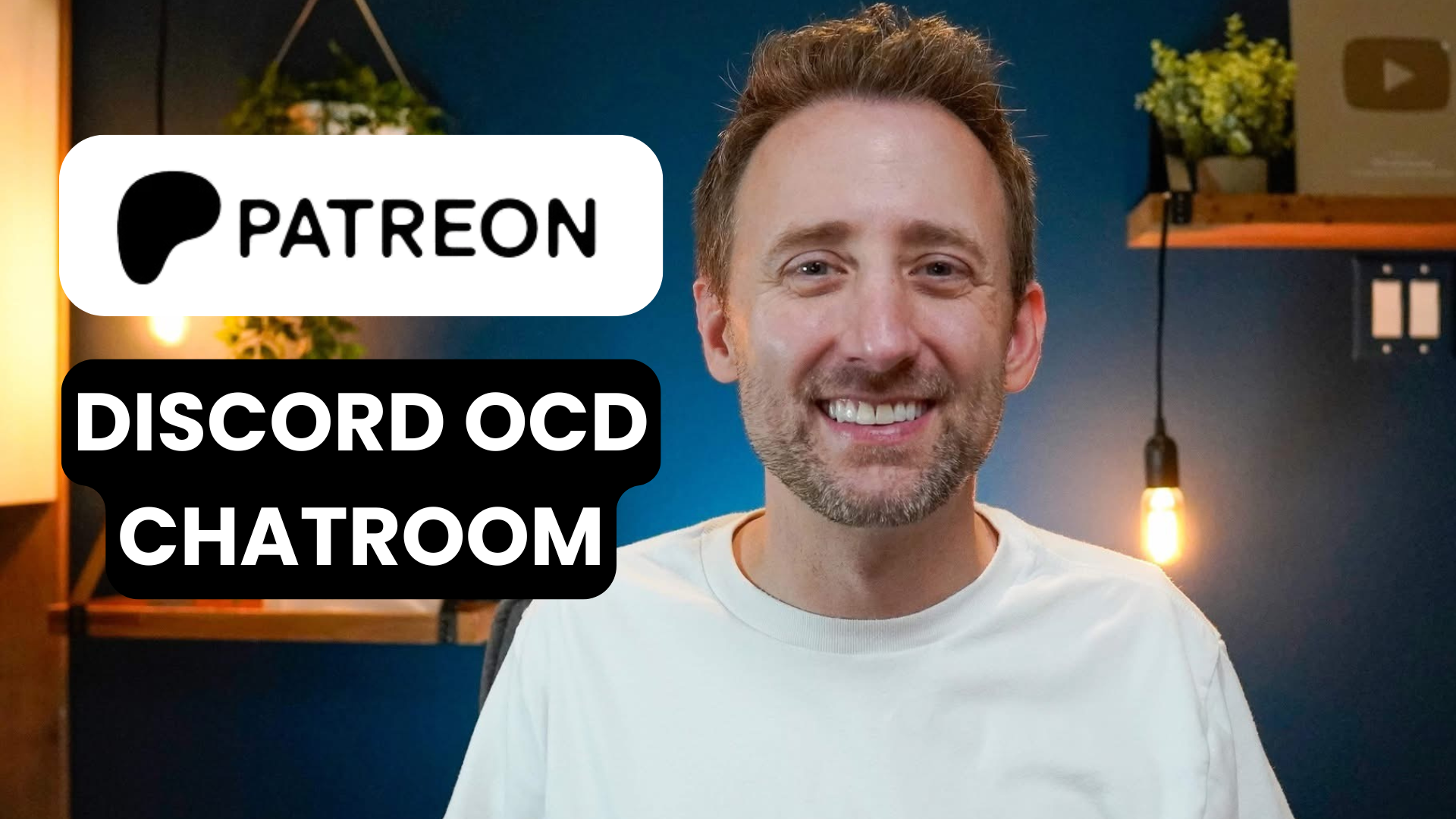What OCD phrase do I use again?
Sep 12, 2023
Non engagement responses with OCD
Let me show you how to do Nothing. It looks like this.
When we have anything in our life that is wrong our first initial reaction is to fix it. Whether it's a physical illness or we are having thoughts we don't want to have. Those who have OCD sometimes struggle to figure out, what am I supposed to do when I am having these thoughts?
How are we supposed to respond? And while every person is different, sometimes there doesn't have to be a response. I find that people get obsessive over if they were doing the right thing.
What if you have no response at all? What if you did nothing? Nada. Ziltch. I mean this works for some people. They do have the ability to completely do nothing. It's not that they are purposely ignoring it or pushing it away they just have this ability.
For those with children, you may have experienced this before. A child is sitting in the backseat of the car talking and 10 minutes pass and you realize. "oh my gosh...they are still talking." They didn't really need a response and you knew they were going to continue to talk.
They've been talking the whole time, you just were living your own life and essentially tuned it out. This is exactly what I mean. If you have this ability with OCD, let's do it. Naturally, tune it out.
By doing this, you are simply taking any power and value away from it. So what I'm trying to say is that there does not always have to be something you do to respond to your OCD.
If you do choose to respond to it let's use what is called non-engagement responses and there are a few ways that we do this.
First, we can acknowledge any emotion or feeling that were having. It throws out a threat, you have cancer even though the doctor said you didn't. My response is. I am feeling anxious about this. What I am not doing is saying, no the doctor said everything is fine. You just have to trust in the doctor. If I did have cancer I would know it right.
OCD acceptance phrases
I am accepting feeling as a feeling.
Here is another one. You know, you offended that person. What if you did something really wrong? You know, I don't really know if I offended that person and I'm choosing to not know.
Here's the one you're probably familiar with.
You know how risky it is for you to be driving right now. You just went over a bump on the road how do you know it's not a person? My response. You know anything is possible. Maybe I did, maybe I didn't. I am choosing to not go back and check.
One more for you. Do you remember that thing you did in the past? Like what if this ruins your future? My answer. Well, that would really stink wouldn’t it.
All of these responses are not really engaging with the OCD but simply using a statement as if I do not care and I'm choosing to not figure this out anymore.
What it is really doing is helping you not problem-solve this thing anymore. You are willing to take the risk of whatever it is and choose to either continue moving on your day even with the threat of different thoughts or your giving these non-engaging types of responses.
I remember looking at a home to buy and just a few streets away were some train tracks. We were told that this train doesn’t run anymore. Great! The last thing I want is to hear a loud train all the time.
We bought the house and within the first week guess what I heard? A train.
We were lied to. Deceived. I spent months being “bitter” that I heard this train a couple times a day and sometimes at night.
My brain went into problem-solving mode. How can I fix this problem? The realtor that sold the home no longer works for them. They don’t care. I exhausted all my options. Yet my brain would wait for that next train sound. When I heard it, all the feelings of frustration would be hurling back. I would be so hyper-aware of the next time I’d heard it.
There was no solution. At least I thought. Guess what I had to eventually do? Nothing. Nada. Zilch. I had to instead change my reaction to this train. It wasn’t a good sound or a bad sound. It was a sound. I had to accept I was going to hear it. I actually started saying. I’m loving this sound.
Wow! A free vibrating bed. What a gem. I can’t wait for it to come around again. Noooo I didn’t have to believe it. But I gave these responses and then realized that I no longer am noticing the train. It stayed on it’s schedule, but I simply took it’s power away by giving these responses.
How to use nonengagement responses
Ultimately, I’m in a new home now and I can still have bad feelings about that situation. But we learn to not let it dictate our decisions or our life. There are going to be moments where we have to accept things as they are. Risk that I don’t have to have an answer to something. Which is why we use the maybe, maybe not statements when we can.
I love these responses that simply just tell your brain that it doesn’t matter. Keep coming bro. I’m still going to move forward.
I teach more specific responses and more in my online master your OCD course. Check that out in the description below.
Also, let me know what responses you’re going to start telling your OCD in the comments.
Thanks so much for watching and I’ll see you next time.



